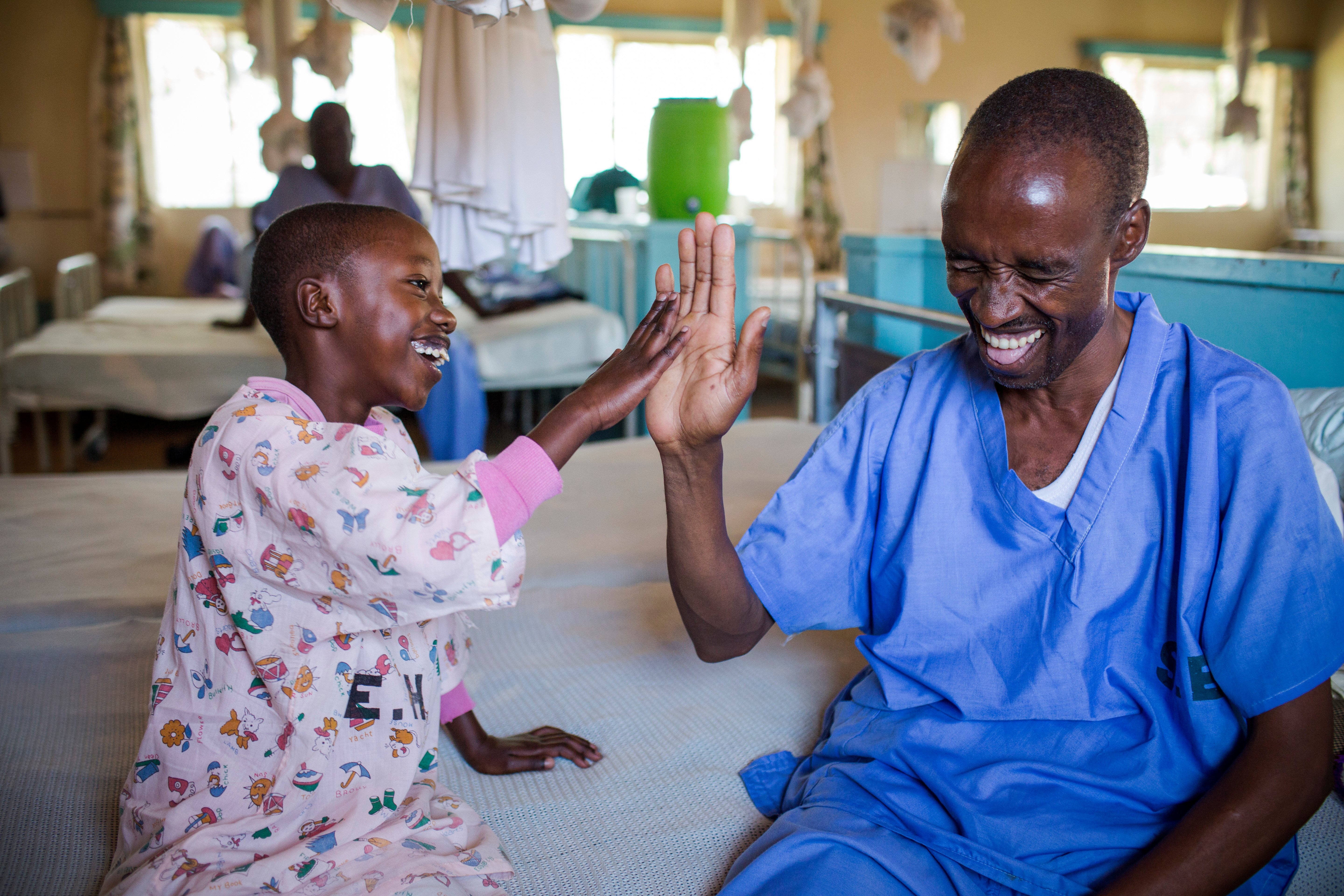Our work in Kenya
In Kenya, 88% of people who are blind don’t need to be. Blindness can be prevented or corrected with straightforward, inexpensive measures. However, for the 74% of Kenyans living in rural areas, access to health services is extremely limited.
Blindness is both a cause and consequence of poverty. People who are often blind cannot work, go to school or live independently.
Some may need the care of another family member, usually a young girl, who also misses out on work or education. Women in Kenya are more likely to suffer blindness than men.

Our goals
In 2018, with the support of the Australian public, the Australian NGO Cooperation Program (ANCP), Standard Chartered Bank and The Queen Elizabeth Diamond Jubilee Trust, we are implementing more than US $3.7 million in programs to eliminate avoidable blindness in Kenya.
Our head office is in Nairobi, with project locations across 13 counties. The team is supported by The Foundation’s medical, education, policy and research expertise. The Foundation is not simply treating people with eye conditions - we are integrating eye health into the national and county health systems to build an entire system that can operate sustainably.
We will continue to work in partnership with the Government of Kenya and the 13 County Governments to:
- Increase the surgical rates and improve quality of eye health services focussing on cataract, trachoma, uncorrected refractive error and childhood blindness
- Strengthen community engagement and capacity to increase demand and uptake of high-quality health services, with a special focus on women
- Support and strengthen health systems at national and county level to effectively plan, resource and monitor eye health services
- Develop strategic and effective partnerships for sustained eye health outcomes

Our achievements
Since we started working in Kenya in 2004, The Foundation has increased coverage of eye health services through the establishment of diverse partnerships with county governments, health training institutions,community-based organisations and the private sector.
During this time, we have demonstrated that quality eye care can be delivered by mid-level ophthalmic workers and that the large backlog of cases awaiting surgery can be eliminated. In close collaboration with the Ministry of Health, The Foundation has transformed trachoma programming through the innovation of TT+, an integrated, cost-effective outreach model.
This model has contributed to the reduction in transmission of trachoma in the country and is now being adopted in other countries.
In 2023, The Foundation and its partners made great progress in key strategic areas in Africa:
2,242,407
People screened.
6,866,243
People treated with antibiotics for trachoma.
33,072
Pairs of glasses distributed.
695
Facilities built, equipped or renovated.
24,207
People trained including community health workers, surgeons and teachers.
364,658
Eye operations and treatments performed including cataract operations, surgeries to treat trachoma, diabetic retinopathy treatments and other sight saving or improving interventions.
2,056,781
School children and community members educated in eye health and sanitation.
The countries in Africa that The Foundation works in are Ethiopia, Kenya, Eritrea, Rwanda, Burundi, Uganda, Tanzania and Cameroon .
